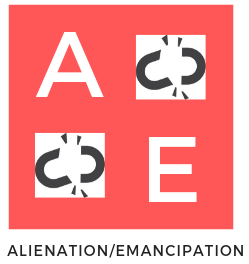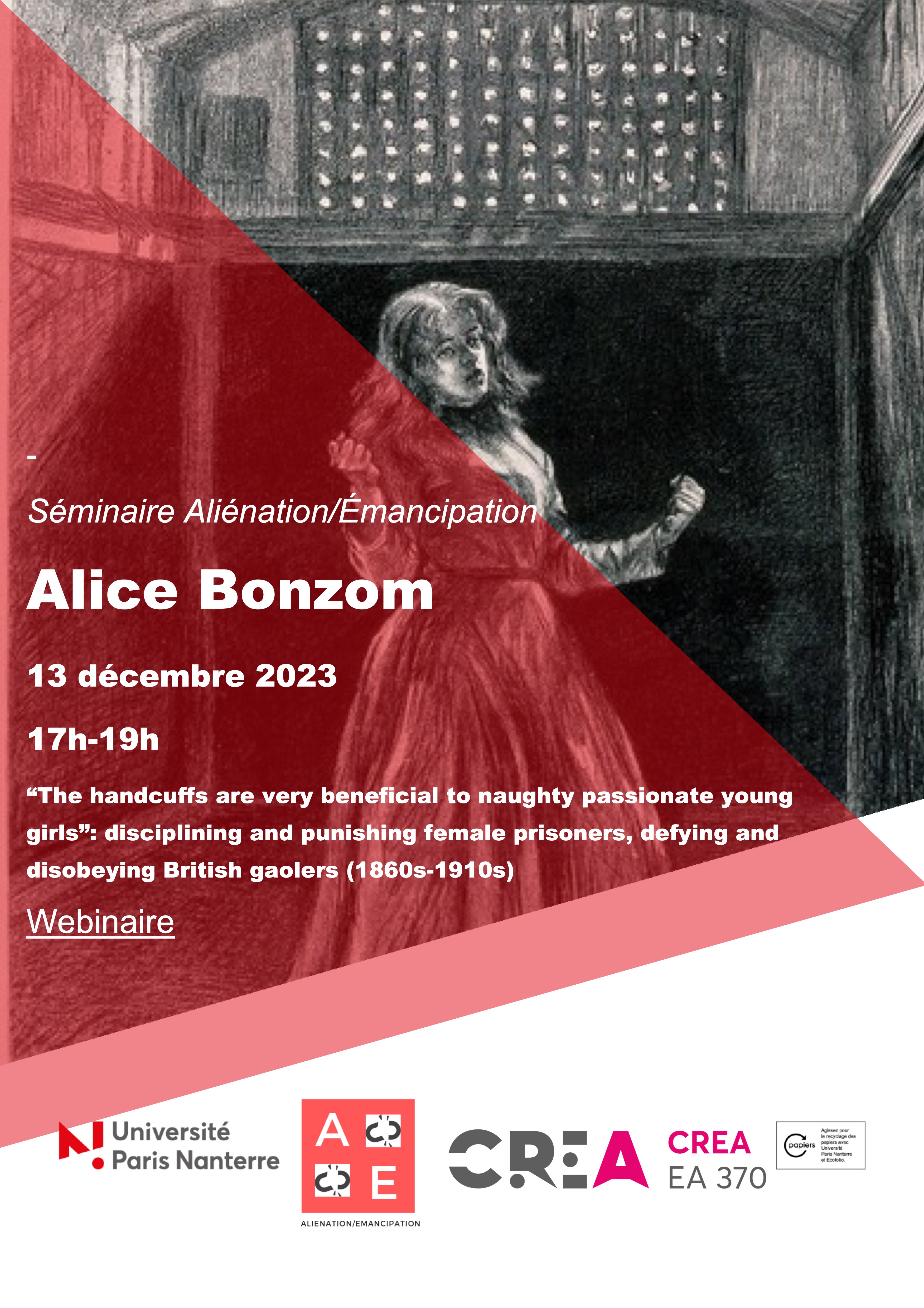Version française / Séminaires
- Libellé inconnu,
Séminaire Aliénation/Émancipation : Alice Bonzom
Publié le 21 novembre 2023
–
Mis à jour le 4 décembre 2023

“The handcuffs are very beneficial to naughty passionate young girls”: disciplining and punishing female prisoners, defying and disobeying British gaolers (1860s-1910s)
Date(s)
le 13 décembre 2023
17h-19h
Lieu(x)
Séminaire en visioconférence
Female prisoners, not unlike other categories of women, have often been invisibilised, kept quiet, out of sight and out of (their?) mind(s). Both as prisoners and as women, they are often relegated to the footnotes of history books. While there were a lot less women in long-term and short-term prisons than men, in the second half of the 19th century until World War I, female prisoners were conceived of as particularly problematic. They raised specific issues due to their supposed ‘natures’; portrayed as women on the edge of normality and femininity, and on the edge of a nervous breakdown, they confronted the authorities with disciplinary issues that were interpreted as specifically female problems. A prison medical officer interviewed by a government committee in the 1890s claimed that there were “naughty passionate young girls” who needed to be disciplined and punished. But just how (in)docile were women’s bodies and minds in late Victorians and Edwardian prison? Regulated and subdued, they were also, at times, rebellious and ingenious, deviant and defiant. By shifting perspectives, this paper intends to study the alienation and emancipation of women in prison, exploring both how they were seen and constrained from above, and how they defied the rules, disobeyed orders and tried to “unshackle” themselves.
Alice Bonzom is a doctor in British civilisation and an associate professor in history at the Université Lumière Lyon 2. Her PhD, entitled “Between criminality, insanity, deviance and defiance: Victorian and Edwardian women in London (1877-1914)”, was awarded a thesis prize in the “Social and Political History Since 1870” category by the French Institute for Justice and Democracy in 2020. Her research bears on the history of prisons in the Victorian and Edwardian periods. More specifically, she is keen to explore the part played by gender in carceral and peri- carceral environments as well as scientific issues connected to deviance and criminality (eugenics, alcoholism, feeble-mindedness). Her latest publication, entitled “The ‘one bright light’ of Life in a Dark Cell: Reading and Writing in Victorian and Edwardian English Prisons” (2022), focuses on the production and consumption of legal and illegal written words in prison.
Alice Bonzom is a doctor in British civilisation and an associate professor in history at the Université Lumière Lyon 2. Her PhD, entitled “Between criminality, insanity, deviance and defiance: Victorian and Edwardian women in London (1877-1914)”, was awarded a thesis prize in the “Social and Political History Since 1870” category by the French Institute for Justice and Democracy in 2020. Her research bears on the history of prisons in the Victorian and Edwardian periods. More specifically, she is keen to explore the part played by gender in carceral and peri- carceral environments as well as scientific issues connected to deviance and criminality (eugenics, alcoholism, feeble-mindedness). Her latest publication, entitled “The ‘one bright light’ of Life in a Dark Cell: Reading and Writing in Victorian and Edwardian English Prisons” (2022), focuses on the production and consumption of legal and illegal written words in prison.
Mis à jour le 04 décembre 2023
Contact :
Laurence Dubois : ldubois@parisnanterre.fr













